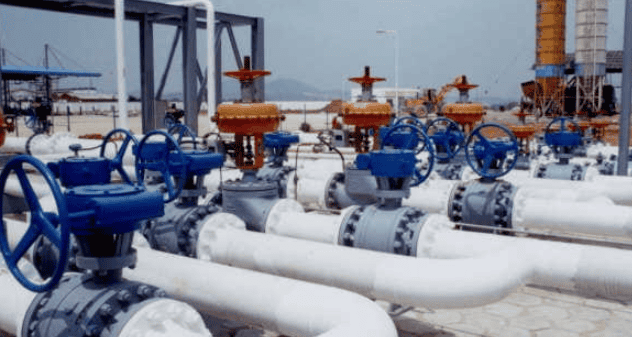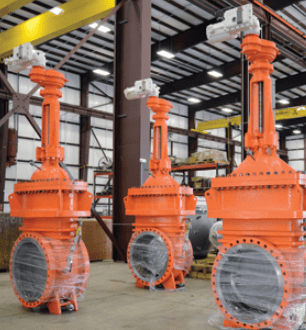Industrial valves are used to control, regulate or direct the flow of liquids, gases, slurries or fluidised solids. They are robust and able to withstand harsh conditions.
Industries that utilise industrial valves include food and beverage, oil and gas, power and energy, petrochemicals, pharmaceuticals, construction, and water and wastewater treatment.

With a wide choice available, it can be hard to know which industrial valves are the best for your situation. So, what are the main things to consider?
1. Temperature and Pressure Requirements
Make sure that the valve’s temperature and pressure range are sufficient for your needs. If the temperature or pressure is too high, this can lower the strength of the valve, increasing the risk of rupture. Choose a valve that is able to maintain consistent performance even if the temperature or pressure fluctuates.
2. Compatibility of Valve Materials with Relevant Fluids
Once you understand the qualities and chemical composition of the service fluid, you need to consider which valve materials are most suitable. For example, if the fluid is abrasive, you will need a valve made from a material that can cope with this without being damaged.
3. Valve Actuators
An actuator is a crucial part of a valve. When choosing an actuator, you need to consider the capacity, availability of external power sources and environmental conditions. The three main types of actuators are hydraulic, pneumatic and electric.
There are a number of manufacturers who specialise in industrial valves. Many of these have online resources that can help you decide what options are best for your needs, such as the examples seen here: https://orseal.
4. Valve Leakage Ratings
Once you have identified the type of service media you will use, you can also establish acceptable leakage levels and make sure that the valves guarantee this.

5. Valve and Industry Standards
You should ensure that the valve adheres to the applicable standards for your jurisdiction. These include EN (for the European market), and ASME and AWWA (for the USA). The manufacturer should also follow industry standards and guidelines.
